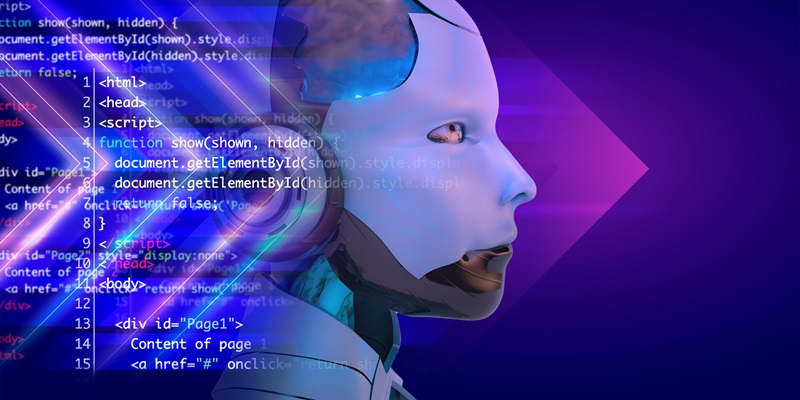The advent of Artificial Intelligence (AI) in the realm of software development heralds a new age of efficiency and possibility. As industries push for swifter production cycles and developers face the Herculean task of maintaining this pace, AI emerges as a beacon of hope. Tools powered by AI not only promise speed but also deliver it, pulling the industry into a future where innovation cycles are measured not in months but in days. Yet, as the boundaries of technological progress are pushed, the balancing act between the expediency provided by AI and the meticulous attention to quality and security that only a human touch can guarantee, becomes increasingly complex. This article ventures into the intricacies of this balance, contemplating the synergy required between AI-driven automation and human discretion to uphold the rigorous standards that are the hallmark of premier software development.
AI Code Generators: Game-Changers in Modern Development
The landscape of software development is experiencing a seismic shift with the integration of AI into its core processes. Tales of AI’s triumphs in automating complex coding tasks are ubiquitous, with recent reports claiming a staggering majority of developers are turning to these tools. This paradigm shift is taking shape as AI code generators are apotheosized, providing developers with an unparalleled asset in their toolkit. The marvel of AI lies in its ability to not only comprehend the intricacies of code but also to maneuver through the labyrinth of software architecture with an efficiency that is humanly unattainable.
Conversely, the very attributes that make AI indispensable can also be its Achilles’ heel. Coupled with its capacity for lightning-fast code generation is the propensity to introduce risks—security vulnerabilities and a lack of context awareness that can precipitate rather than prevent technical debt. The automated nature of AI generation isn’t infallible, and its byproducts necessitate a vigilant eye to ensure that the quality does not yield under the weight of efficiency. Here we probe the inherent dichotomy of AI’s impact, punctuating the dialogue with the need for balance.
The Human Touch: Indispensable in the Age of Automation
While AI’s virtues in tackling monotonous tasks are lauded in no uncertain terms, the masterful artistry of software development still strongly demands human cognizance. Human developers endow code with its soul, interpreting nuanced business logic and interweaving it within the fabric of complicated algorithms. The human element manifests not in performing what AI can but in overseeing and guiding the outcomes AI produces. This section elucidates the reasons that maintain the irreplaceability of developers in this automated era: their discerning judgment, their insightful problem-solving capabilities, and their critical role in scrutinizing the outputs that AI generates.
It is irrefutable that AI’s capabilities immensely bolster the coding process in certain facets, yet it is also clear that these tools fall short in totality. The rich tapestry of responsibilities that await developers cannot be exclusively entrusted to the hands of AI. Beyond expediting code generation, developers are needed to navigate more complex and abstract realms, ensuring AI’s prowess is directed and refined. We unravel the scenarios where human intervention becomes imperative, celebrating the symbiosis between human expertise and the expeditiousness of AI.
Monitoring AI with Automated Tools: A Safety Net
Notwithstanding the sheer potential of AI in coding, it is pivotal to wield tools that monitor and authenticate the machine-generated output. This discourse navigates through the spectrum of automated tools like code scanners and Static Application Security Testing (SAST), which are seamlessly woven into the fabric of CI/CD pipelines. These instruments provide a layer of security—the safety net that safeguards against the vulnerabilities AI might miss.
This section deliberates on the immeasurable value of implementing a robust system adept at preemptively catching issues before they explode, effectively facilitating a more secure and fluid development workflow. Here, the limelight shifts to the indispensable automated tools that safeguard code integrity and act as the right hand to developers in an AI-driven development sphere.
Striking the Right Balance: AI Efficiency and Quality Assurance
The allure of AI in catapulting the coding process into the stratosphere of efficiency is undeniable. But efficiency without the underpinning of quality is akin to building on quicksand. We explore the junction where AI meets meticulous quality controls, where speed operates within the bounds of excellence. This article’s crucible holds the perspectives on the optimization of AI for competitive advantage, tempered by an unwavering commitment to maintaining high-quality output.
How do we navigate this new world where AI and human oversight coexist not as adversaries but as allies? This contemplation centers on crafting a harmonious workflow where AI’s capabilities are leveraged not at the cost of quality but in its enhancement. A meticulous calibration between these two forces will undoubtedly yield a robust, resilient software product that withstands the judicial scrutiny of both machines and men.
The journey of integrating AI in software development is continuous, however, with strategic planning, judicious use of AI tools, and a resolute dedication to quality, we inch closer to a future where technology amplifies humanity’s finest work while preserving the integrity and craftsmanship that define it.

